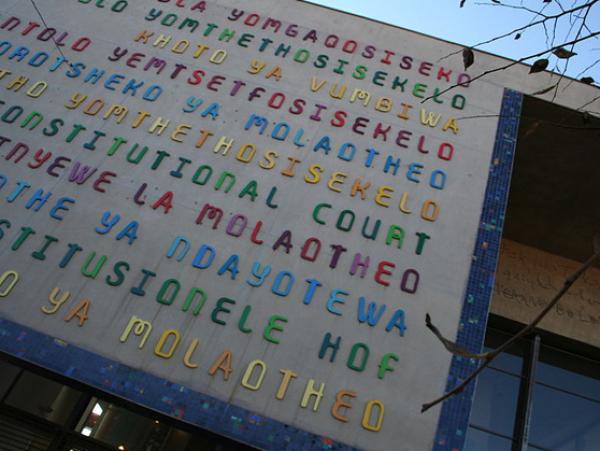Cash Paymaster Services defends its right to profit from social grants contract
Any new deal with SASSA will be a lawful contract, says CPS in court papers
Cash Paymaster Services (CPS) has rejected arguments that it has no right to make a profit from any new contract with the SA Social Security Agency (SASSA) to pay out social grants.
Any interim contract, said CPS, would be a lawful contract, concluded in line with decisions by the new Ministerial Task Team, and therefore CPS would have the right to benefit from it.
CPS was responding to arguments submitted to the Constitutional Court last week by Freedom Under Law, in support of an application by the Black Sash. The Black Sash is asking for any new contract with CPS to be brought under the supervision of the Court when the present contract expires on 31 March. The matter is to be heard on 15 March.
In its papers, Freedom Under Law referred to previous Constitutional Court decisions, in 2013 and 2014. The Court said then that the 2012-2017 contract with SASSA was unlawful, and that CPS had no right to benefit from an unlawful contract. Based on these rulings, Freedom Under Law argued that CPS should not profit from a new social grants payment contract either.
CPS is currently paid a fee of R16.44 per beneficiary to pay out the social grants. How much of this is profit is not clear, nor it is clear how much the other companies in the Net1 group, such as insurer Smartlife and money lender Moneyline, profit on the back of the CPS contract.
The Court ordered CPS in 2014 to file audited statements of expenses incurred, income received and net profit earned under the current contract “within 60 days of the completion of the five-year period for which the contract was initially awarded”, and told SASSA to get “an independent audited verification” of the CPS statements and file this too with the Court.
Based on this 2014 ruling, Freedom Under Law has argued that CPS should not benefit from a new contract either.
But, said CPS in a response filed yesterday, “if an interim contract were to be concluded, it would be a lawful contract concluded pursuant to the mechanism proposed by the Ministerial Task Team”. As a result, said CPS, it was not correct to argue that the company should not benefit from this contract.
The seven-person task team, which includes Minister of Social Development Bathabile Dlamini and Minister of Finance Pravin Gordhan and is chaired by Minister in the Presidency Jeff Radebe, was set up on 8 March. At its first meeting on 9 March, the team decided the current negotiations between SASSA and CPS should be broken off, and new negotiations should only start if and when the National Treasury gave permission for SASSA to proceed without calling for other bids.
In response to the Black Sash application, SASSA and Dlamini say in their papers that they do not oppose the Black Sash request that the Court should oversee a new contract. But, they do oppose Freedom Under Law’s request that they be ordered to file all documents and correspondence relating to the negotiation of the new contract. CPS also opposes this in its own papers. Freedom Under Law can file an application under the Promotion of Access to Information Act (PAIA) to get the documents, they say.
Furthermore, the Minister, SASSA and CPS all take issue with Freedom Under Law’s argument that CPS should not be allowed to charge more than the current fee of R16.44 a month.
“It is respectfully submitted,” say SASSA and Dlamini, “that justice and equity do not require the Court to determine, in advance, the terms (regarding price and duration) on which SASSA and CPS may contract with each other”.
“Doing that would fall outside the parameters of judicial authority contemplated by the separation of powers.”
SASSA was instructed on 8 March by Chief Justice Mogoeng Mogoeng to explain who had decided that SASSA would not be able to take over the grant payment system itself, when this decision had been taken, and why the Court had not been informed. The Chief Justice also asked SASSA to provide details of any contract with CPS.
In a response filed last night and lodged with the Court today, acting SASSA CEO Wiseman Magasela said there was no contract with CPS.
He said SASSA official Zodwa Mvulane had known in April last year that SASSA would not be able to take over the payments system from 31 March this year. The Minister had been informed of this in October 2016.
On the question of why the Constitutional Court had not been informed, Magasela said: “No-one made a decision not to inform the Court.”
This article has been amended to include material from the documents filed last night by SASSA.
Support independent journalism
Donate using Payfast

Don't miss out on the latest news
We respect your privacy, and promise we won't spam you.
© 2017 GroundUp. 
This article is licensed under a Creative Commons Attribution-NoDerivatives 4.0 International License.
You may republish this article, so long as you credit the authors and GroundUp, and do not change the text. Please include a link back to the original article.

